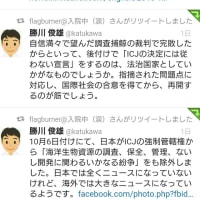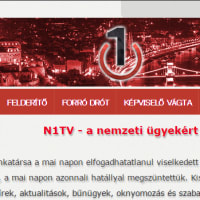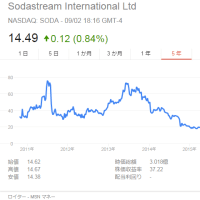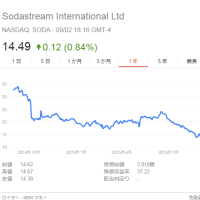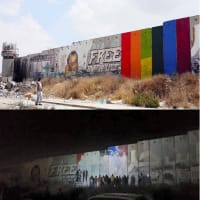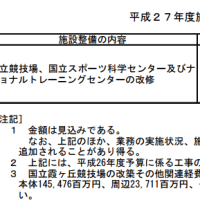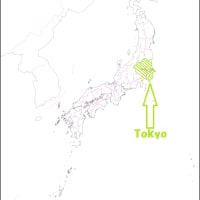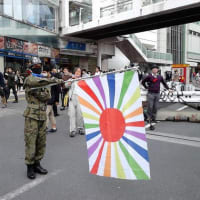つーことで、今年もあと数時間で終了。
とはいえ、パレスチナやイスラエルなどでは新年でもなんでもないけど・・・。
イスラエルの Beit Shemesh(Jerusalem 近郊にある都市)で(ユダヤ教の)戒律を厳格に適用して公の場で女性と男性を「分ける」生活を行っている
超正統派ユダヤ教徒(ultra-Orthodox:Haredi)の一部の方々が、それを守らなかった(と判断された)女性への侮辱行為が横行してる、ってのをこの blog でもネタにした。
この辺は以下参照(手抜き)。
・Is discrimination against women a religious practice of Haredi?(Dec 25, 2011)(2011年12月25日 flagburner's blog(仮))
実は、これについては、Haredi の人達の中で指導的な役割を果たす人達(Rebbe:רבי:イデイッシュ語、ラビ(ヘブライ語)からの借用語)があまり発言してこなかった。
その辺について、jta.org が意味深な論説を書いていた・・・。
・Where do Israeli haredim stand on haredi violence?(2011年12月30日 jta.org)
Beit Shemesh で一連の事件については、イスラエルでは Haredi 以外の政党に所属する政治家が「女性差別は許されない」という非難を行っている。
また、米国の正統派ユダヤ教徒が所属する団体とかも同様の声明を出している。
↓はその一例。
・RCA and OU Join in Condemning Extremist Violence in Beit Shemesh, Israel - and Call for Care to Not Assign Guilt to Entire Communities for the Actions of the Few (2011年12月29日 Rabbinical Council of America)
が、イスラエルに住んでいる Haredi の人達は一連の事件についてあまり発言をしてないという。
その裏には、Haredi の人達の現状も少なからず影響しているようで・・・。
以下、2011年12月30日分 jta.org『Where do Israeli haredim~』から Bar-Ilan 大学に所属している Menachem Friedman氏の発言を8略
---- 以下引用 ----
(中略)
“The question isn’t how many haredim support haredi violence and how many do not,” said sociologist Menachem Friedman, an expert on haredi life and professor emeritus at Bar-Ilan University.
“In all the conflicts involving haredi violence in Israel, from the British Mandate period until today, violent haredim were always a small minority, and I believe that the vast majority feel uncomfortable about them.
“The problem is that most haredim allow the extremists to act and do not stop them,” Friedman continued.
“Some, perhaps a small segment, really do support the violence; some, perhaps a larger segment, do not support the violence but understand the extremists, believing that actions like these, even if they are not pretty, at the end of the day are a true expression of religious sentiments," he said.
"And the majority perhaps opposes the violence and knows that ultimately it’s bad for Judaism but doesn’t have the courage to go out and oppose it publicly."
(以下略)
---- 引用以上 ----
急進的な方々(一連の事件を起こした方々)の行動も宗教的動機による、か。
そして、それがこうした人達の行動(女性への侮辱行為など)への理解を促進してる、と・・・。
これって、「やったもん勝ち」って社会状況を生みかねないと思うのは俺だけか?
なんせ、(ユダヤ教の)戒律を破った人達に侮辱行為をしても黙認されるだけだし。
とはいえ、Rebbe の方々の中にも僅かだが一連の事件についてコメントしてた人がいた。
しかし、その発言はあまり広まっていないようで・・・。
以下、2011年12月30日分 jta.org『Where do Israeli haredim~』から中盤部分を(略
---- 以下引用 ----
(中略)
But the roundabout way the rebbe’s message was delivered, and the scant media coverage given to haredi opposition to the violence aimed at non-haredim, is indicative both of the difficulties outsiders have with discerning shades of gray in haredi society and the ambivalence within the haredi world toward using violence to achieve religious aims.
For one thing, Israeli haredi condemnations of violence are not delivered the same way as condemnations in the non-haredi world.
They are generally directed inward, not outward; they tend to be delivered not in statements to the press but as words of Torah to followers; they are often spoken not in English or Hebrew, but in Yiddish; and they are expressed less as a reaction to current events than as calls for dignified behavior by Torah-observant Jews.
“The Belzer rebbe is one of the few people who has the guts to say something,” Tuvya Stern, a haredi attorney who lives in Beit Shemesh, told JTA.
“But he’s not going to condemn the extremists; that’s not his way. He’ll just advocate for a different approach.”
Rokeach’s speech, which was reported in haredi media and noted by Israel Radio, was unusual both because it referred to current events and because it was aimed, at least in part, at a wider audience: The rebbe had invited an Israeli Knesset member, Education Minister Gideon Sa’ar, to be with him when he delivered his speech on Chanukah’s sixth night.
Because Rokeach made his remarks in Yiddish, it’s not clear whether or not Sa’ar picked up on their significance.
(以下略)
---- 引用以上 ----
内向きのメッセージ、か。
Rebbe の方々にしてみれば自分達への支持を固めることこそ先決、という論理で動いてるのかもしれんが・・・。
世界が Haredi の人達だけで回ってるわけじゃないってのに気付いてないんだろうか?(人のことは言えないけど)
まぁ、Rebbe の方々が内向きになるのも無理はない模様。
つーのも、多くの Haredi の人達は、正統派ユダヤ教とか(ユダヤ教的な意味で)世俗的な思想の侵入に反対している、という事情があるとかなんとか・・・。
一体「何」に対する戦いなのやら(溜息)
一方、Haredi でない人達(俺含む)は、イスラエルに住んでる Haredi の人達を「1つの集団」と認識しがち。
が、(イスラエルに住んでいる)Haredi の人達は結構複雑な構成になってるとか。
そして、それは、一連の事件への対応にも繋がってるという・・・。
以下、2011年12月30日分 jta.org『Where do~』から後半部分を(略
---- 以下引用 ----
(中略)
And then there is the large segment of haredim who see themselves as totally apart from the haredim perpetrating the violence.
Their attitude is that if it’s not their community members, it’s not their business and they don’t need to get involved.
While to an outsider all haredim may look alike -- with their black coats, hats and beards -- the haredi community is as fractured as the Jewish community as a whole.
In Israel, the haredi community is divided between Ashkenazi and Sephardic, Chasidic and non-Chasidic, moderates and extremists.
Within the Chasidic community, too, there are multiple sects -- and sometimes even competing grand rebbes within the same sect.
But in a world seen by outsiders as monolithic, all haredim inevitably are associated with the extremism of a few, and haredi silence is seen as affirmation of haredi bad behavior.
It’s something that may irk haredim who are engaged with the outside world, but it doesn’t seem to matter much to haredim who aren’t.
(以下略)
---- 引用以上 ----
Haredi 内の各コミュニティは思想も異なる、か。
こういう状況ってのは、Haredi でない人達に伝わりにくいって面もあるけど・・・。
それって、Haredi の人達の中で起きてる不正について「黙認する」のを認める根拠になるわけないと思う。
(「黙認する」自由云々は別のレベルの話)
無論、Haredi の人達の間で女性差別を容認する根拠にもならないが。
その辺について Rebbe の方々は何を考えてるのやら・・・。
つーことで、今年の更新はこれで終わり。
果たして来年はどんな一年になるのやら・・・。
ってことで、でわまた来年。
とはいえ、パレスチナやイスラエルなどでは新年でもなんでもないけど・・・。
イスラエルの Beit Shemesh(Jerusalem 近郊にある都市)で(ユダヤ教の)戒律を厳格に適用して公の場で女性と男性を「分ける」生活を行っている
超正統派ユダヤ教徒(ultra-Orthodox:Haredi)の一部の方々が、それを守らなかった(と判断された)女性への侮辱行為が横行してる、ってのをこの blog でもネタにした。
この辺は以下参照(手抜き)。
・Is discrimination against women a religious practice of Haredi?(Dec 25, 2011)(2011年12月25日 flagburner's blog(仮))
実は、これについては、Haredi の人達の中で指導的な役割を果たす人達(Rebbe:רבי:イデイッシュ語、ラビ(ヘブライ語)からの借用語)があまり発言してこなかった。
その辺について、jta.org が意味深な論説を書いていた・・・。
・Where do Israeli haredim stand on haredi violence?(2011年12月30日 jta.org)
Beit Shemesh で一連の事件については、イスラエルでは Haredi 以外の政党に所属する政治家が「女性差別は許されない」という非難を行っている。
また、米国の正統派ユダヤ教徒が所属する団体とかも同様の声明を出している。
↓はその一例。
・RCA and OU Join in Condemning Extremist Violence in Beit Shemesh, Israel - and Call for Care to Not Assign Guilt to Entire Communities for the Actions of the Few (2011年12月29日 Rabbinical Council of America)
が、イスラエルに住んでいる Haredi の人達は一連の事件についてあまり発言をしてないという。
その裏には、Haredi の人達の現状も少なからず影響しているようで・・・。
以下、2011年12月30日分 jta.org『Where do Israeli haredim~』から Bar-Ilan 大学に所属している Menachem Friedman氏の発言を8略
---- 以下引用 ----
(中略)
“The question isn’t how many haredim support haredi violence and how many do not,” said sociologist Menachem Friedman, an expert on haredi life and professor emeritus at Bar-Ilan University.
“In all the conflicts involving haredi violence in Israel, from the British Mandate period until today, violent haredim were always a small minority, and I believe that the vast majority feel uncomfortable about them.
“The problem is that most haredim allow the extremists to act and do not stop them,” Friedman continued.
“Some, perhaps a small segment, really do support the violence; some, perhaps a larger segment, do not support the violence but understand the extremists, believing that actions like these, even if they are not pretty, at the end of the day are a true expression of religious sentiments," he said.
"And the majority perhaps opposes the violence and knows that ultimately it’s bad for Judaism but doesn’t have the courage to go out and oppose it publicly."
(以下略)
---- 引用以上 ----
急進的な方々(一連の事件を起こした方々)の行動も宗教的動機による、か。
そして、それがこうした人達の行動(女性への侮辱行為など)への理解を促進してる、と・・・。
これって、「やったもん勝ち」って社会状況を生みかねないと思うのは俺だけか?
なんせ、(ユダヤ教の)戒律を破った人達に侮辱行為をしても黙認されるだけだし。
とはいえ、Rebbe の方々の中にも僅かだが一連の事件についてコメントしてた人がいた。
しかし、その発言はあまり広まっていないようで・・・。
以下、2011年12月30日分 jta.org『Where do Israeli haredim~』から中盤部分を(略
---- 以下引用 ----
(中略)
But the roundabout way the rebbe’s message was delivered, and the scant media coverage given to haredi opposition to the violence aimed at non-haredim, is indicative both of the difficulties outsiders have with discerning shades of gray in haredi society and the ambivalence within the haredi world toward using violence to achieve religious aims.
For one thing, Israeli haredi condemnations of violence are not delivered the same way as condemnations in the non-haredi world.
They are generally directed inward, not outward; they tend to be delivered not in statements to the press but as words of Torah to followers; they are often spoken not in English or Hebrew, but in Yiddish; and they are expressed less as a reaction to current events than as calls for dignified behavior by Torah-observant Jews.
“The Belzer rebbe is one of the few people who has the guts to say something,” Tuvya Stern, a haredi attorney who lives in Beit Shemesh, told JTA.
“But he’s not going to condemn the extremists; that’s not his way. He’ll just advocate for a different approach.”
Rokeach’s speech, which was reported in haredi media and noted by Israel Radio, was unusual both because it referred to current events and because it was aimed, at least in part, at a wider audience: The rebbe had invited an Israeli Knesset member, Education Minister Gideon Sa’ar, to be with him when he delivered his speech on Chanukah’s sixth night.
Because Rokeach made his remarks in Yiddish, it’s not clear whether or not Sa’ar picked up on their significance.
(以下略)
---- 引用以上 ----
内向きのメッセージ、か。
Rebbe の方々にしてみれば自分達への支持を固めることこそ先決、という論理で動いてるのかもしれんが・・・。
世界が Haredi の人達だけで回ってるわけじゃないってのに気付いてないんだろうか?(人のことは言えないけど)
まぁ、Rebbe の方々が内向きになるのも無理はない模様。
つーのも、多くの Haredi の人達は、正統派ユダヤ教とか(ユダヤ教的な意味で)世俗的な思想の侵入に反対している、という事情があるとかなんとか・・・。
一体「何」に対する戦いなのやら(溜息)
一方、Haredi でない人達(俺含む)は、イスラエルに住んでる Haredi の人達を「1つの集団」と認識しがち。
が、(イスラエルに住んでいる)Haredi の人達は結構複雑な構成になってるとか。
そして、それは、一連の事件への対応にも繋がってるという・・・。
以下、2011年12月30日分 jta.org『Where do~』から後半部分を(略
---- 以下引用 ----
(中略)
And then there is the large segment of haredim who see themselves as totally apart from the haredim perpetrating the violence.
Their attitude is that if it’s not their community members, it’s not their business and they don’t need to get involved.
While to an outsider all haredim may look alike -- with their black coats, hats and beards -- the haredi community is as fractured as the Jewish community as a whole.
In Israel, the haredi community is divided between Ashkenazi and Sephardic, Chasidic and non-Chasidic, moderates and extremists.
Within the Chasidic community, too, there are multiple sects -- and sometimes even competing grand rebbes within the same sect.
But in a world seen by outsiders as monolithic, all haredim inevitably are associated with the extremism of a few, and haredi silence is seen as affirmation of haredi bad behavior.
It’s something that may irk haredim who are engaged with the outside world, but it doesn’t seem to matter much to haredim who aren’t.
(以下略)
---- 引用以上 ----
Haredi 内の各コミュニティは思想も異なる、か。
こういう状況ってのは、Haredi でない人達に伝わりにくいって面もあるけど・・・。
それって、Haredi の人達の中で起きてる不正について「黙認する」のを認める根拠になるわけないと思う。
(「黙認する」自由云々は別のレベルの話)
無論、Haredi の人達の間で女性差別を容認する根拠にもならないが。
その辺について Rebbe の方々は何を考えてるのやら・・・。
つーことで、今年の更新はこれで終わり。
果たして来年はどんな一年になるのやら・・・。
ってことで、でわまた来年。











